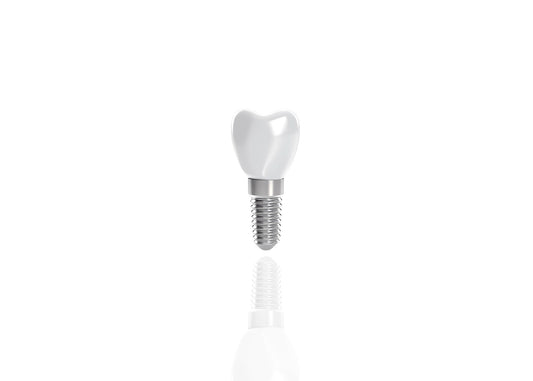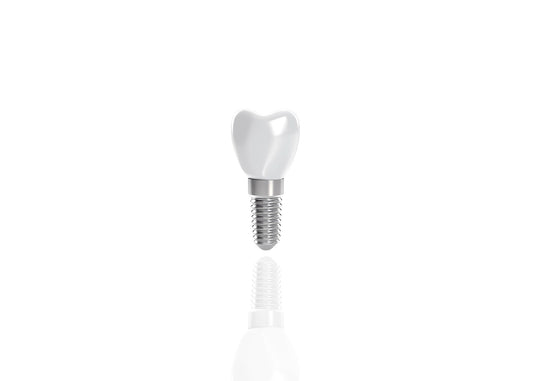Collection: CDI Implants
Implant crowns refer to the prosthetic component of a dental implant system that replaces a missing tooth. Dental implants are titanium posts surgically placed into the jawbone, where they fuse with the bone through a process called osseointegration. Once integrated, an implant crown is placed on top of the implant to simulate the appearance and function of a natural tooth.
Here are key aspects of implant crowns:
-
Purpose: Implant crowns serve as the visible part of the dental implant system, replacing the missing tooth. They restore both the aesthetic appearance and functionality of the natural tooth, enabling patients to chew, speak, and smile with confidence.
-
Materials: Implant crowns are typically made from materials such as porcelain, zirconia, or a combination of materials. These materials are chosen for their durability, aesthetics, and biocompatibility, ensuring a natural appearance and long-term reliability.
-
Customization: Implant crowns are custom-made to match the size, shape, and color of the patient's natural teeth. This customization ensures that the implant crown blends seamlessly with the patient's smile, enhancing overall dental aesthetics.
-
Procedure: The process of placing an implant crown involves several steps:
- Implant Placement: First, the dental implant is surgically placed into the jawbone by a specialist such as an oral surgeon or periodontist.
- Healing Phase: The implant undergoes a healing period, during which it integrates with the surrounding bone (osseointegration).
- Abutment Placement: Once osseointegration is complete, a connector piece called an abutment is attached to the implant. The abutment serves as the foundation for the implant crown.
- Crown Placement: Finally, the custom-made implant crown is secured onto the abutment. The crown is adjusted for fit and bite to ensure optimal comfort and functionality.
-
Benefits: Implant crowns offer several advantages over traditional dental prosthetics, such as:
- Durability: They are designed to be long-lasting with proper care.
- Stability: Implant crowns are stable and do not rely on adjacent teeth for support, preserving the integrity of neighboring teeth.
- Bone Preservation: Dental implants help maintain bone structure in the jaw, which can deteriorate over time when a tooth is missing.
Overall, implant crowns represent a sophisticated and effective solution for replacing missing teeth, restoring oral function, and improving dental aesthetics for patients seeking a permanent tooth replacement option.
-
Titanium Abutment with PFM Crown
Regular price $270.00 USDRegular priceUnit price / per -
Titanium Abutment with Zirconia Crown
Regular price $300.00 USDRegular priceUnit price / per


